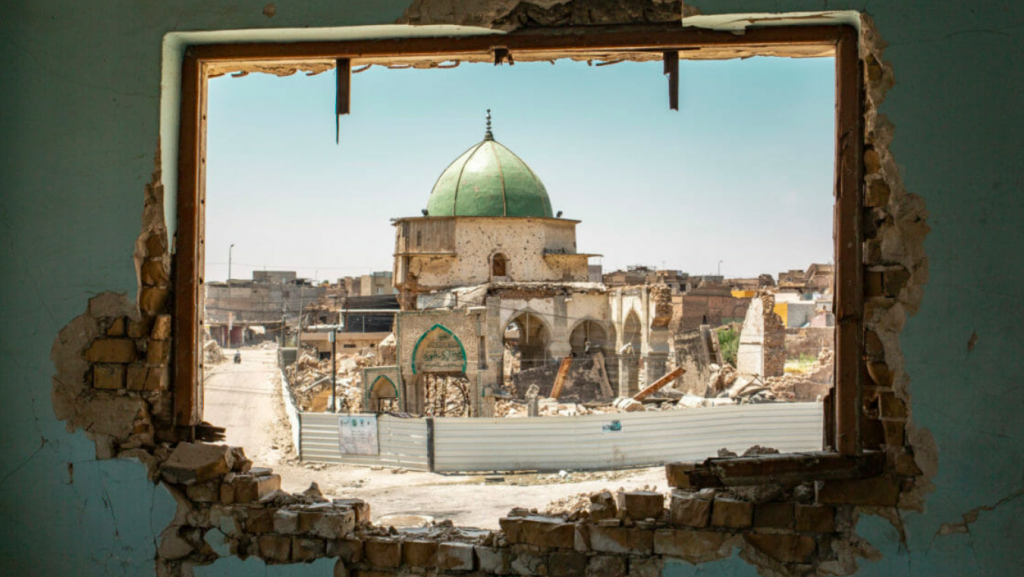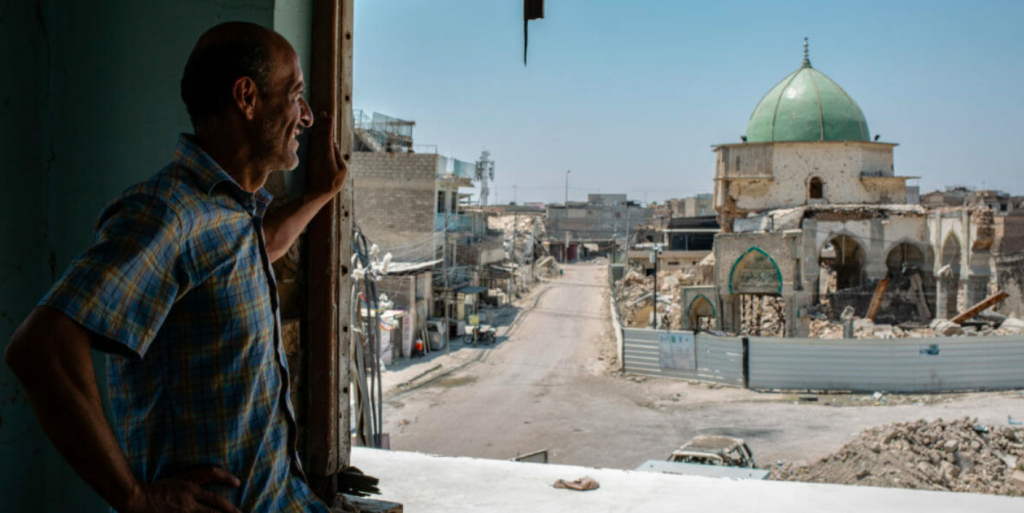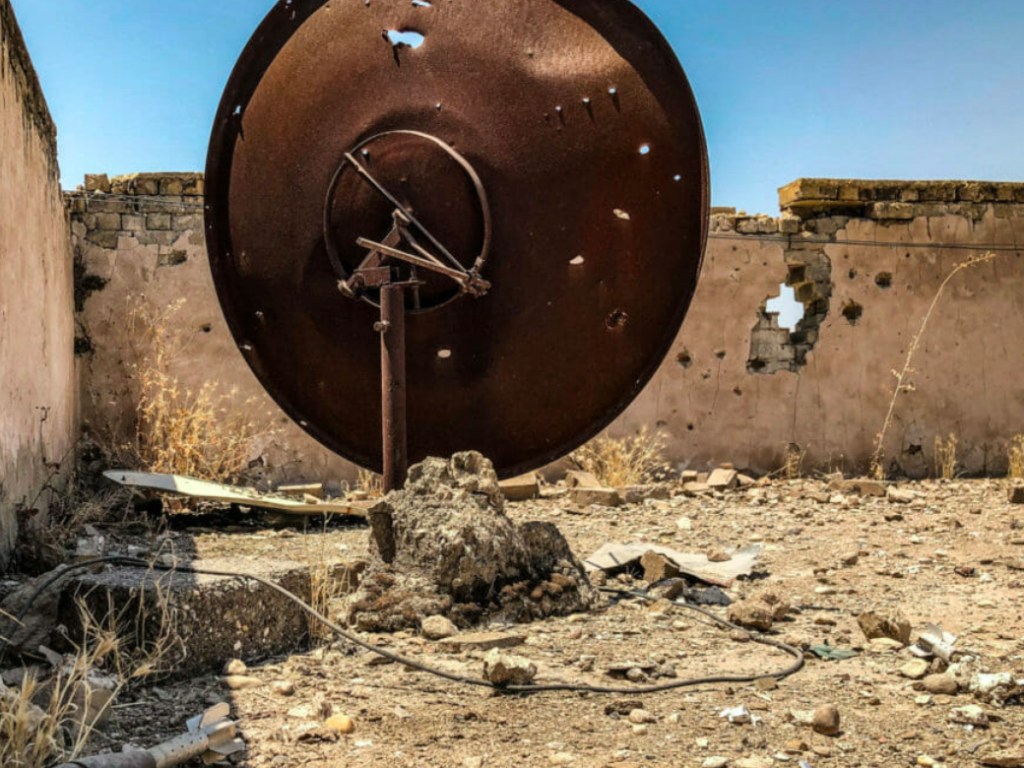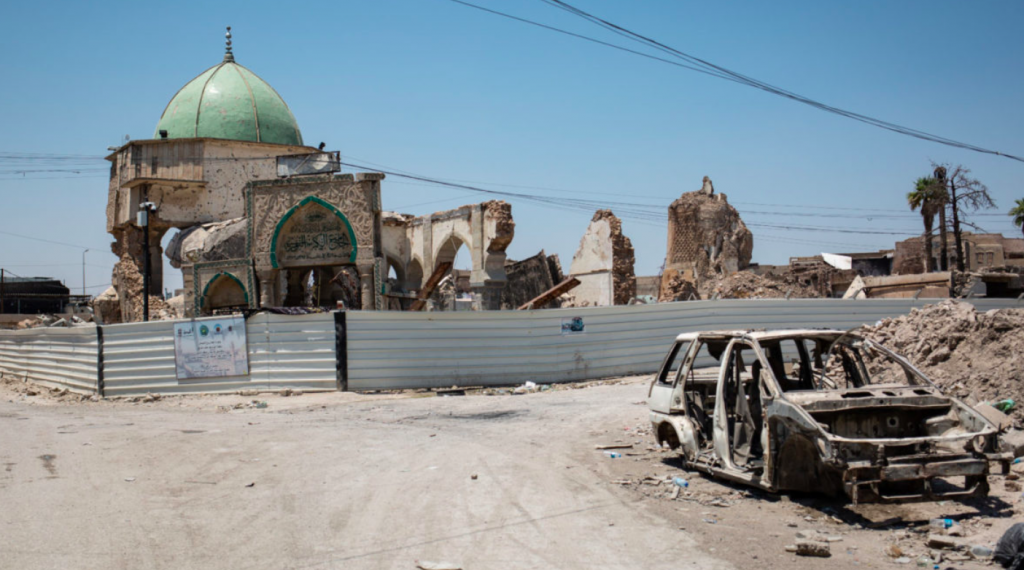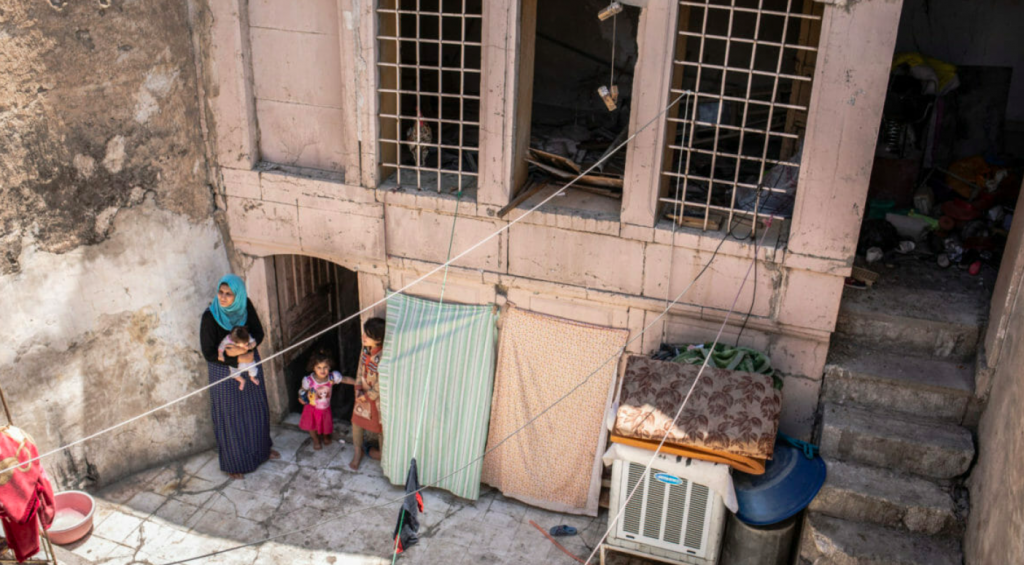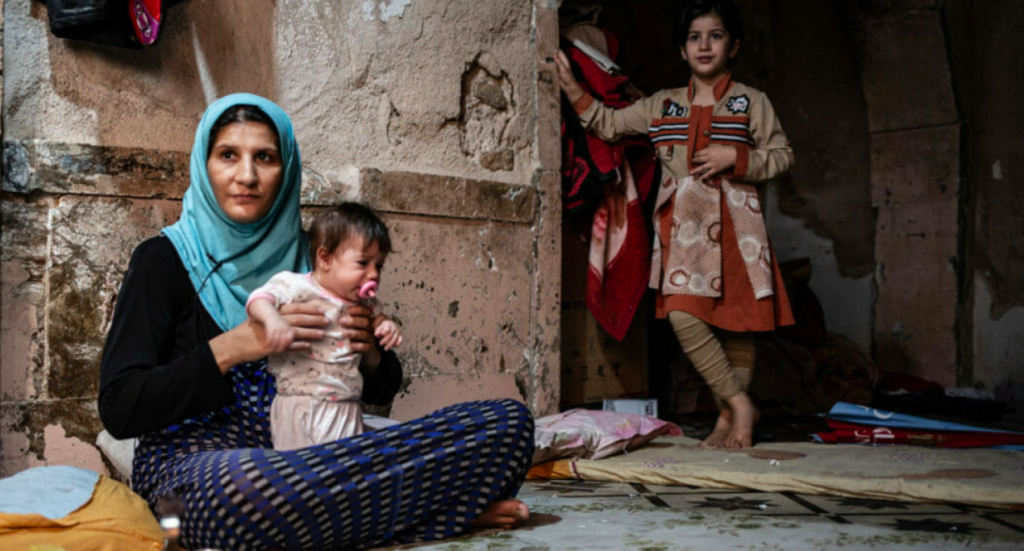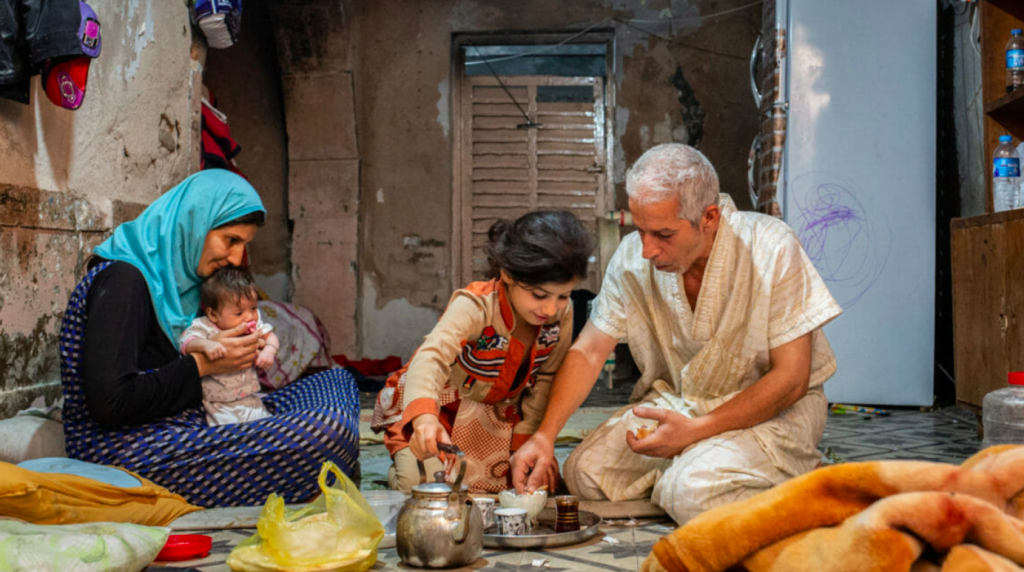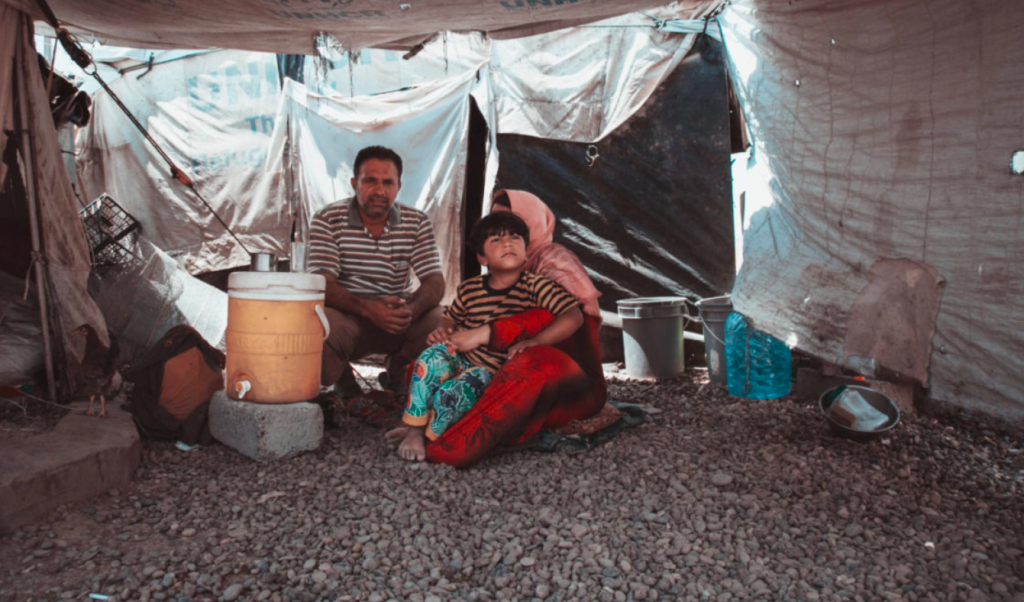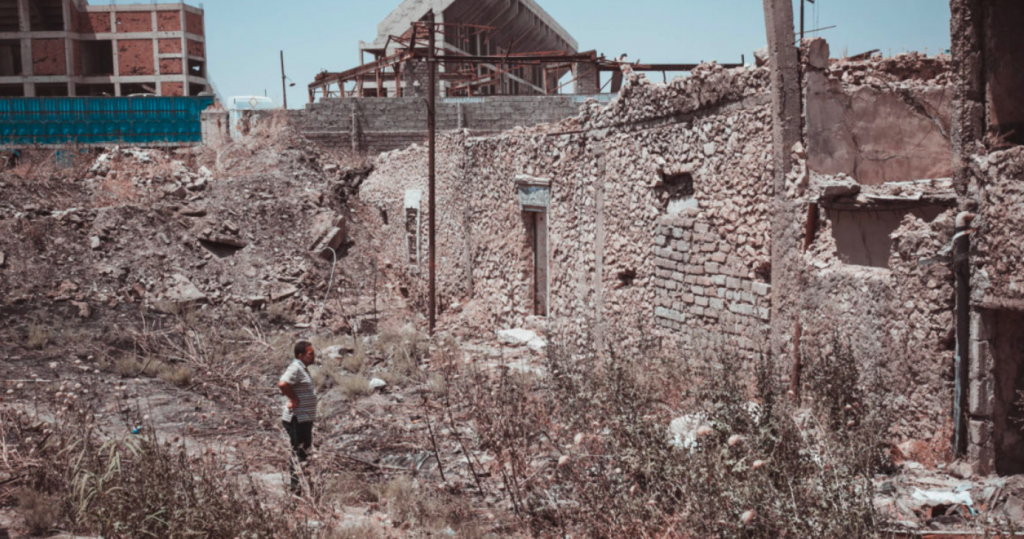In Pictures: The Devastated City of Mosul Two Years On
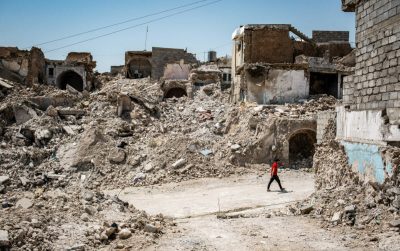
More than 300,000 people are unable to return to their homes in Mosul two years after the end of a military operation to retake Iraq’s second largest city from Islamic State.
An estimated 138,000 houses were damaged or destroyed in Mosul during bitter fighting between Iraqi forces and Islamic State, also known as ISIS, ISIL, or Daesh.
Islamic State (IS) launched an offensive on Mosul in June 2014. On 29 June that year, IS leader, Abu Bakr al Baghdadi, announced the formation of a caliphate stretching from Aleppo in Syria to Diyala in Iraq. Mosul was an important IS stronghold.
Iraqi forces – supported by Kurds and the US – began an offensive to retake Mosul on 17 October 2016, finally taking the city on 10 July 2017.
The Ferret reported from inside Mosul in March 2017 as Iraqi forces fought street to street with Islamic State in the eastern part of the city.
In West Mosul alone, there are still more than 53,000 houses flattened and thousands more damaged. Many displaced families have run out of savings and are in debt, surviving on humanitarian aid.
The Mosque of al-Nuri seen through a damaged window – West Mosul
The mosque of al-Nuri, where the IS group proclaimed the Islamic State in Iraq is still in ruins, as pretty much all the old city in Mosul. “It looks like a painting on the wall but its more like a scar that’s not healing,” says Hussein, who used to live there. In west Mosul alone, 53,000 houses are still destroyed, and as many families who can’t return. Rubble and unexploded bombs are still lacing the city.
Hussein Abas, watching al Nuri Mosque from his destroyed house
Hussein’s house is at the heart of the old city of Mosul, which was massively bombed during retaking operations two years ago. His house was occupied by the IS group and is still heavily damaged and contaminated with unexploded mortar shells. “I can’t return, it’s not safe. The house is full of ammunition. There are even mortar shells on the rooftop, it’s very dangerous for the children”. He and his two kids live with other family members outside of the old city. They will not be able to return home as long as it’s not safe.
An unexploded mortar shell on Hussein’s rooftop – Old city of Mosul
“The house is full of ammunition. There are even mortar shells on the rooftop”.
The remains of Al Nuri Mosque
The remains of Al Nuri Mosque – two years after it was destroyed by IS group Reconstruction work has started to restore the historic Mosque, but its neighbourhood is far from receiving the same treatment. “We haven’t received a dinar from the government,” says Hussein, a teacher in the old city, “the only help comes from the community and the people themselves. We are rebuilding this city ourselves. Is that normal?” Two years after the end of retaking operations, 78% of displaced people from Mosul can’t return because their house is still destroyed. Only 4% is intending to return in 2019.
According to the Norwegian Refugee Council (NRC) – which has been helping displaced Iraqis from Mosul – only four per cent of people said they intended to return to Mosul this year.
“For them, the suffering of the war that ended two years ago remains a daily battle for survival,” said Rishana Haniffa, the Iraq country director for the Norwegian Refugee Council.
“It’s a disgrace that after two years, thousands of families and children still have to live in displacement camps and in abysmal conditions because their neighbourhoods are still in ruins.
“Some have attempted to return several times but faced a dead end. In spite of the world’s attention two years ago, Mosul’s displaced population has all but been forgotten.”
Liqaa and her family
Liqaa, her husband and five children have to live in the basement of their destroyed house. “My house got burnt, I have nothing left in my house. I did not even have blankets” she says. The family has been living there for one year, they don’t have the money to rebuild nor rent another house. “The government will not give us compensation. If they were intending to give us compensation they would have done it during the past two years. We are living on the support from the community,” she says.
Liqaa and her family
“Those who do not have money return because they have no other option. They will live exactly how we live. I have 5 children and we live in this basement room. We eat, drink and sleep here,” says Liqaa.
Liqaa and her family
“People cannot return to this area because there are no services. In the old city, we don’t have services, neither a hospital nearby. If you go to a hospital there is no medicine. You have to buy it from outside the hospital. If you don’t have money how can you live?”
The loss of ID cards, birth certificates and other essential documentation also remains one of the main obstacles for thousands of families wanting to return. Without official documents proving their legal identity, displaced Iraqis are deprived of their most basic rights as citizens, unable to move freely and barred from property ownership and employment.
“We urge the Iraqi government and the international community to step up reconstruction work so that Iraqis can return to their homes,” Haniffa said. “But in the meantime, the authorities can immediately help these families make a giant leap forward by issuing them with their missing documentation that would allow them to plan their return in dignity.”
Muhammed has been living in the camp for three years
Muhammed Hassan Yunis, 41 years old from Mosul, has been living with his family in Hamam Al-Alil Camp in Mosul for three years. “I want to return to Mosul but the cost of the rent is very high without any regulation from the governorate. In addition, finding a job in Mosul is very hard as there are very little job opportunities. Living there is too hard when you don’t have a house, a job and you have to pay the rent and electricity,” he says.
Muhammed looks at a ruined house
Muhammed is not able to go back to Mosul, because his house is destroyed, he lost everything he owns, his financial status does not allow him to rent a new house, and he can not even find a job to start over and rebuild his life.
In the last two years, NRC has repaired and rebuilt houses for more than 5,200 people in Mosul and supported more than 6,000 undocumented people to obtain or retrieve civil documents.
*
Note to readers: please click the share buttons above or below. Forward this article to your email lists. Crosspost on your blog site, internet forums. etc.
All images in this article are from The Ferret


